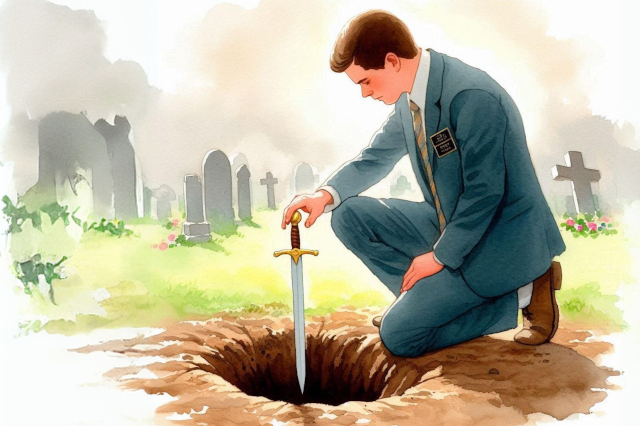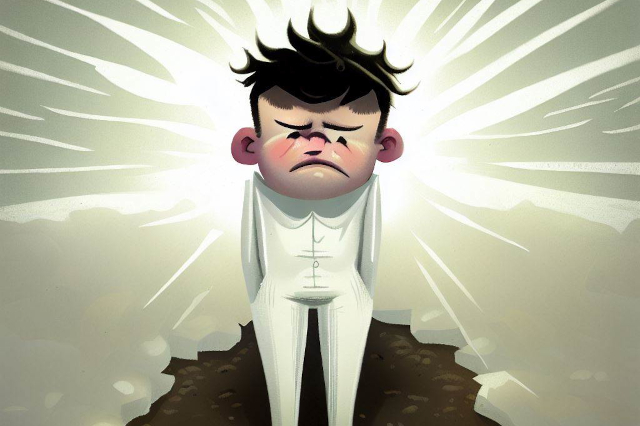
Thou shalt make his soul an offering for sin
Today’s post has been weighing on my mind for a while. Several scriptures, thoughts, and connections have come to me recently. But I don’t have a neat way to tie them all together. So, ready or not, I’m just going to share them with you, stream of consciousness, and hope you get the gist.
Atoning blood
The first two chapters of King Benjamin’s speech heavily emphasized the Atonement of Jesus Christ. He specifically mentioned the “atoning blood” of Christ five times. He then paused his sermon to get feedback from the people. Like Enos, they were touched by the message of salvation, and their souls hungered for eternal life and the joy of the saints. They cried out to their king in unison, saying:
O have mercy, and apply the atoning blood of Christ that we may receive forgiveness of our sins, and our hearts may be purified
That phrase, “apply the atoning blood of Christ,” stands out to me. What does it mean to “apply” blood to ourselves? Blood is a staining liquid, like paint, so it can be applied in a similar way. The ancient Israelites painted the blood of the firstborn lamb on their doorposts so the destroying angel would pass over them. Moses applied the blood of bulls to the altar, then sprinkled that blood onto the Israelite people themselves as a sign they had entered into a new covenant with Christ to be His people. In Leviticus, the Lord commanded the priests to apply the blood of sacrifices to the altar during the Day of Atonement.
The ancient sacrifice
I have to confess: I’m really squeamish about blood, wounds, and death. To this day, I still have nightmares about long-departed pet fish. So if you’re like me, the mental exercise I’m about to describe might make you uncomfortable, but I invite you to try it anyway.
Try to imagine how that tactile, physical experience of sacrificing a lamb must have felt: the effort to secure and wrestle a squirming lamb into an uncomfortable position, trying to tie it up so it can’t escape. If you’ve ever cut raw chicken, you know it takes some effort to cut through meat—multiply that by ten. Imagine bending the lamb’s head back to expose its neck and working to cut open its throat while it writhes in pain. Imagine feeling the lamb’s life slowly fade away in your arms. Picture its blood pooling all over the altar and all over you. Imagine thrusting your bare hands onto (or even into) its wound to coat your fingers with its blood so you can apply it to the doorpost or the altar.
The new sacrifice
Mortal lambs were sacrificed as a symbol of the great and last sacrifice of the Lamb of God. Once He had risen from the tomb and humanity could thrust their fingers into His wounds, the need for sacrifice by the shedding of blood ended. Now, the standard is to sacrifice not our sheep, but our sins to God.
But I wonder if, without that tactile experience, this new sacrifice can become overly sterile and abstract to us. I can’t imagine it ever became a rote thing to slit a prized animal’s throat and burn precious meat for no good reason. Yet, it can become all too routine to say a quick prayer and take the Sacrament.
It also removes some of the “active” nature of the experience. We almost take the passenger seat. Christ paid the full price, and we’re merely assenting to it. All we bring to the table are our sins, and we really shouldn’t want to keep those anyway.
But is that actually all we bring to the table? I was recently struck as I read these words of Isaiah, quoted by Abinadi:
It pleased the LORD to bruise him; he hath put him to grief: when thou shalt make his soul an offering for sin, he shall see his seed.
That phrase hit me hard: “thou shalt make his soul an offering for sin.” Who is “thou?” In likening this verse to the Atonement of Christ, Isaiah refers to both Heavenly Father and Jesus Christ in the third person. I’m no scholar, but I think that means the “thou” is Isaiah’s audience—you and me. To me, this scripture seems to be a commandment to us: “You shall make Jesus an offering for your sin.”
All of a sudden, I’m back in the driver’s seat again. When I repent and partake of the Sacrament, I’m not just acknowledging something the Savior did; in a sense, I myself am personally offering up the Savior as a sacrifice for my sins just as the ancient Israelites offered up their lambs.
Wow, that just got real. And it’s about to get even more real.
The present tense sacrifice
The experiences of the Garden and the cross occurred at a specific time and place. Jesus was serious when He said from the cross, “It is finished.” His blood was shed.
But shedding the animal’s blood was only the first part of the sacrifice, remember? In the symbolism of ancient Israel, Jesus is not just the animal who gave the blood; He is also the priest who applies that saving blood to us. Our Savior continues that holy work today. Pay attention to all the present-tense language in these words of the Savior in this dispensation:
Listen to him who is the advocate with the Father, who is pleading your cause before him—
Saying: Father, behold the sufferings and death of him who did no sin, in whom thou wast well pleased; behold the blood of thy Son which was shed, the blood of him whom thou gavest that thyself might be glorified;
Wherefore, Father, spare these my brethren that believe on my name, that they may come unto me and have everlasting life.
Elder Maxwell added these thoughts surrounding that scripture:
Jesus’ continuing advocacy for us mortals … continues in a special, ongoing process as we, individually, access and apply His atoning blood… Jesus did not retire to some corner of the universe for a well-earned vacation after performing the great Atonement, but He has remained constantly vigilant and vigorous, personally mindful of all of us.
This scripture inspires reverence in me more quickly than most others. The idea that my Savior not only went through so much for me two millennia ago, but that He applies that sacrifice on my behalf right now, humbles me and fills me with an extra measure of gratitude. And because He is applying His Atonement to me right now, I should apply it myself, following the invitation of Elder Klebingat:
Because the Atonement of Jesus Christ is very practical, you should apply it generously 24/7, for it never runs out. Embrace the Atonement of Jesus Christ and repentance as things that are to be welcomed and applied daily according to the Great Physician’s orders.


